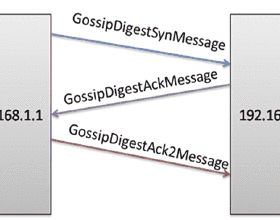We consider a decentralized optimization problem, in which $n$ nodes collaborate to optimize a global objective function using local communications only. While many decentralized algorithms focus on \emph{gossip} communications (pairwise averaging), we consider a different scheme, in which a ``token'' that contains the current estimate of the model performs a random walk over the network, and updates its model using the local model of the node it is at. Indeed, token algorithms generally benefit from improved communication efficiency and privacy guarantees. We frame the token algorithm as a randomized gossip algorithm on a conceptual graph, which allows us to prove a series of convergence results for variance-reduced and accelerated token algorithms for the complete graph. We also extend these results to the case of multiple tokens by extending the conceptual graph, and to general graphs by tweaking the communication procedure. The reduction from token to well-studied gossip algorithms leads to tight rates for many token algorithms, and we illustrate their performance empirically.
翻译:我们考虑的是分散化优化问题,在这个问题中,一美元节点只合作使用当地通信优化全球目标功能。虽然许多分散化算法侧重于通信(平均平均),但我们考虑的是不同的方案,其中含有模型当前估计的“token”在网络上随机行走,并使用节点的当地模式更新模型。事实上,象征性算法通常受益于通信效率的提高和隐私保障。我们把象征性算法作为随机化八卦算法设置在概念图上,这使我们能够证明对完整图的变换和加速代号算法的一系列趋同结果。我们还将这些结果扩大到多个象征的情况,方法是扩展概念图,通过调整通信程序来更新一般图。从象征性算法到深思熟虑的八卦算法的减缩导致许多象征性算法的收紧率,我们用经验来说明其表现。




